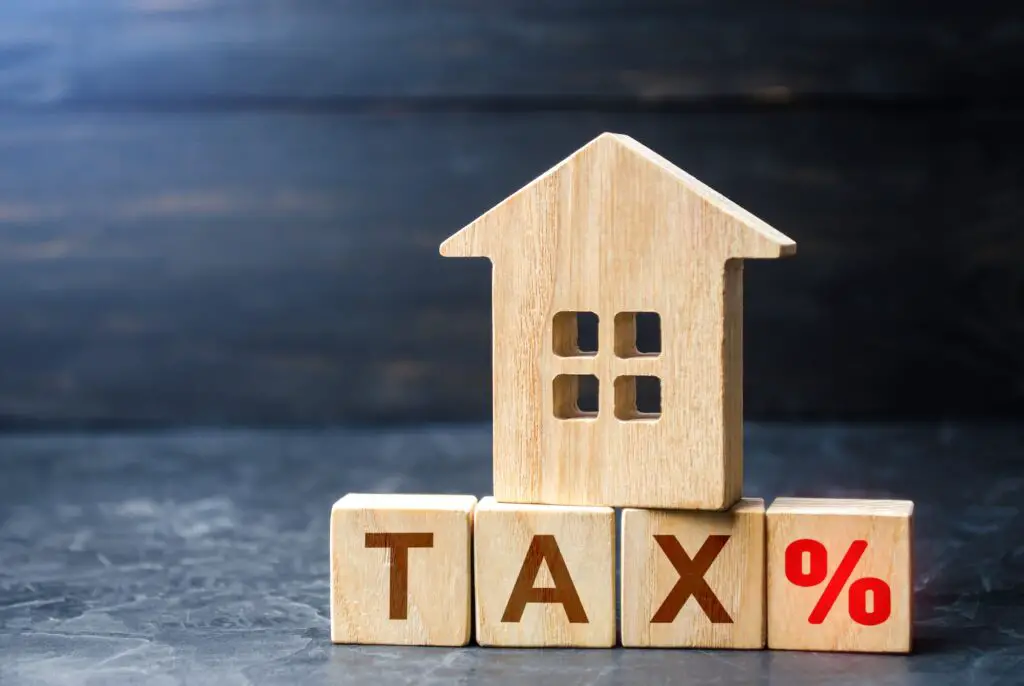Refinancing a home can be an option if you’re looking for a way to reduce your monthly mortgage payments, switch from an adjustable-rate to a fixed-rate mortgage, or need to access some of your home’s equity to make a major purchase or invest in home improvements. But refinancing your home can also affect your taxes in a way that you may not have considered. Knowing how your taxes will be affected by a refinancing can help you make an informed decision when considering whether it’s right for you.
Understanding Taxes
Before discussing how refinancing affects taxes, it’s important to have an understanding of the different types of taxes associated with your home. As a homeowner, you are responsible for three different types of taxes in relation to your home: local property taxes, income taxes, and mortgage interest.
Local Property Taxes
Local property taxes are taxes on the value of your home that you pay to your local municipality. These taxes are usually levied per year and are often used to fund public schools, roads, and other public services. If you refinance your home, the amount of your local property taxes may not change since it’s based on the value of your home.
Income Taxes
Income taxes are taxes that you pay to the federal and state governments based on the amount of income you earn. If you refinance your home, the amount of your income taxes may not change since they are determined by the amount of money you make each year.
Mortgage Interest
Mortgage interest is the interest you pay on your mortgage each month. When you refinance your home, the amount of your mortgage interest can change depending on the length of your new loan, the interest rate of the loan, and the amount of money you borrow.
How Refinancing Impacts Taxes
Now that we understand the different types of taxes associated with a home, let’s look at how refinancing your home affects each tax.
Local Property Taxes
The amount of your local property taxes should not be affected by refinancing since it’s based on the value of your home. However, if you refinance your loan and increase the amount of the loan, the increased loan amount may be used to finance the local property taxes.
Income Taxes
Refinancing can affect your income taxes in a few different ways. In some cases, if you lower the interest rate of your mortgage and reduce the amount of interest you have to pay over the life of the loan, you may be able to qualify for mortgage interest deduction on your federal tax return. If you do qualify, you may be able to deduct the mortgage interest you paid that year on your tax return and save money on your taxes.
Refinancing can also affect your income tax if you had to pay points to the lender when taking out your loan. In this case, those points can be deducted in one lump sum or spread out over the life of the loan. If you choose to spread out the points, you must pay the points slowly over the life of the loan and have that amount show up on your income tax return each year. While this could potentially save you money, it’s something you’ll want to take into consideration when deciding how to pay the points.
Mortgage Interest
The amount of your mortgage interest will change when you refinance your home. If you refinance and switch from an adjustable-rate to a fixed-rate mortgage, you will have the same mortgage interest rate over the life of the loan. This could potentially help you save money on your monthly payments, but it could also mean paying more in interest over the life of the loan.
If you refinance and increase the amount of the loan, the additional loan amount may result in higher interest payments each month. However, if you have equity in your home and borrow against it, you may be able to take advantage of a lower interest rate and save money on your monthly mortgage payments.
Another thing to consider is whether you will be able to deduct the mortgage interest from your taxes. If you refinance and switch from an adjustable-rate to a fixed-rate mortgage, the amount of mortgage interest you can deduct may decrease. In some cases, you may only be able to deduct the amount of interest paid on the principal balance of the loan.
Impact on Your Credit Score
When considering refinancing your home, it’s important to remember that it can also impact your credit score. Refinancing your loan can cause a temporary dip in your credit score as the new loan is being processed. This is due to the fact that new loan applications appear on your credit report and lenders may view this as a risk factor. Additionally, if you take out a new loan with a higher balance, your credit utilization ratio could possibly increase which could also lower your credit score.
Final Thoughts
Refinancing your home can be a great option if you’re looking to reduce your monthly mortgage payments, switch to a fixed-rate mortgage, or access some of your equity. However, it’s important to understand how it can impact your taxes and credit score. Knowing how it affects each of these things can help you make an informed decision when considering refinancing your home.

